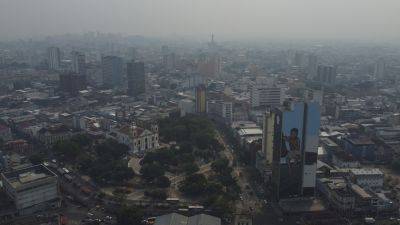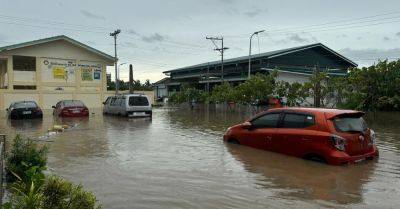Shooting the climate change messenger in Vietnam
As Vietnam reels from the aftermath of Typhoon Yagi, including prolonged power outages, severe damage to roads and bridges and the forced evacuation of over 100,000 people, the realities of climate change loom large.
Rising sea levels threaten to submerge parts of the Mekong Delta, Vietnam’s rice bowl. Saltwater intrusion is already destroying croplands, while increasingly severe storms and floods wreak havoc on communities.
Vietnam is not alone – during the past month, the countries of the lower Mekong basin have each experienced devastating and record-breaking floods. These escalating climate impacts underscore the urgent need for bold climate action and resilience planning across the region.
Yet at this critical juncture, one of Vietnam’s most prominent climate defenders, Dang Dinh Bach, is two weeks into a hunger strike – not from the frontlines of the climate struggle, but from behind prison bars.
Bach’s protest shines a spotlight on the Vietnamese government’s ongoing crackdown on civil society and climate and environmental activists – a crackdown that is undermining both international climate goals and fundamental human rights.
During his three years behind bars, Bach and his family have filed nearly 30 formal complaints about mistreatment and inhumane conditions in prison, only to be ignored by prison authorities.
Bach now feels compelled to take this drastic step, at great risk to his health, to call attention to the plight of elderly and infirm prisoners suffering alongside him under harsh detention conditions.
Bach’s demands are simple and reasonable: abolish solitary confinement, allow prisoners time outdoors for exercise and social contact, ensure electrical safety, permit the exchange of books and adequate







